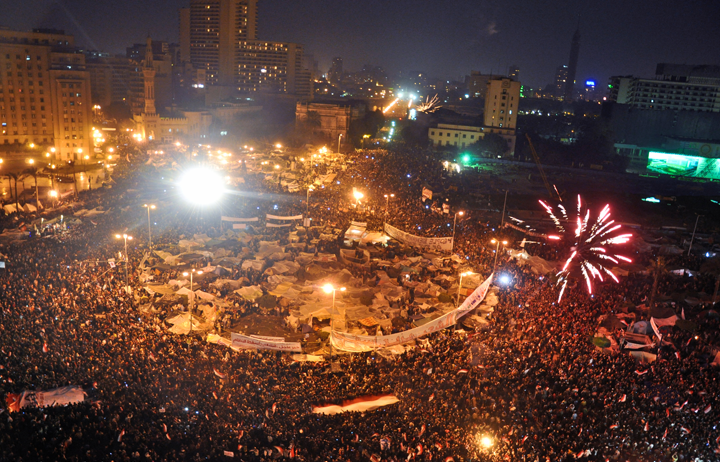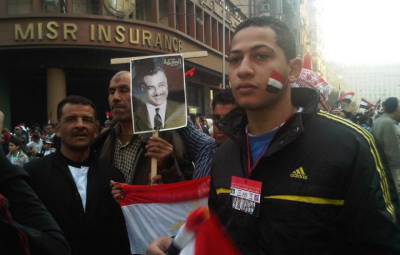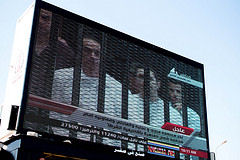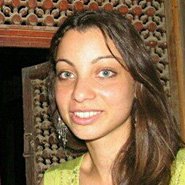
Egypt’s 2011 Revolution: Beyond Conventional Transitional Justice
After former Egyptian President Hosni Mubarak was toppled in February 2011, the Supreme Council for the Armed Forces assumed executive power in Egypt, and launched the ‘transitional period.’ In the seemingly boundless space created by Mubarak’s absence, millions of citizens freely debated every aspect of the emerging political and social order, in public meetings, at home, in the media, and on the streets. It was a time of limitless imagination. Meanwhile, amongst international and Egyptian human rights organisations, a more contained conversation began on the practice and precedents of transitional justice. Cairo soon played host to major conferences on the subject. In these meetings, three central assumptions were regularly made, particularly by international participants. First, transitional justice precedents offer the …

Conference Report: The Egyptian Revolution, One Year On
Having toppled a dictator of thirty years in the uprisings of January and February 2011, millions of Egyptians looked ahead to a future of comprehensive change. In May 2012, they faced the disturbing prospect of choosing a new president from a list that included Mubarak’s last prime minister, and foreign minister. When the former, Ahmad Shafik, was allowed to pass through to the second electoral round, waves of nationwide protest decried his candidacy. Yesterday, to the alarm of pro-revolution political forces, the High Constitutional Court dissolved parliament, and legislative powers passed to the ruling military council. Several prominent activists have slammed the entire transitional process, and have been protesting with fellow Egyptians to boycott a poll they dismiss as illegitimate …

The Myth of ‘Sixty Years of Oppression’
Reem Abou-El-Fadl has recently published an article in Al-Akhbar English newspaper entitled ‘From Nasser to Tantawi: The Myth of “Sixty Years of Oppression”‘. The article considers the connections that have been made in Egypt between the July 1952 Revolution, launched by the Free Officers movement, and the January 2011 Revolution, launched by this year’s popular uprising in Egypt. The article acknowledges that military officials first came into government after the July Revolution, but it goes on to explore the deceptive myth of ‘sixty years of oppression’ since, which has been heard often in recent months. ‘Yet today’s generals are protecting an entirely different set of interests from those important to the Free Officers. They have presided over months of delay …

Trying Mubarak
I have recently published an article entitled ‘Trying Mubarak’, discussing what has been called ‘the trial of the century’ in Egypt. I argue that the trial of former Egyptian President Hosni Mubarak, which began on 3 August 2011, represents a barometer of the fortunes of the January Revolution as a whole. A common challenge confronts both the achievement of accountability in the trial, and the fulfilment of the Revolution’s demands, namely the role of the ruling Supreme Council of the Armed Forces (SCAF). This article discusses the achievement which the holding of this trial represents in the context of the revolution, as well as the practical challenges faced by the legal team of the victims’ families. It then considers the …










